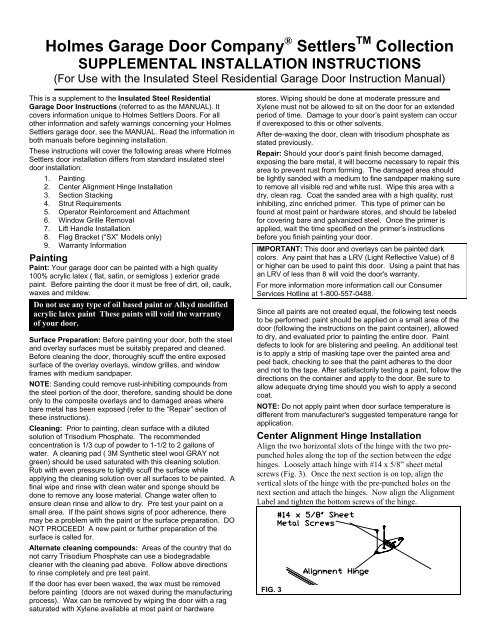
Enhancing the functionality and security of your property begins with the effective setup of your entry barrier system. This essential procedure ensures that the mechanism operates smoothly and reliably, offering both convenience and protection. Our guide provides you with a step-by-step approach to achieve optimal performance and durability.
In this guide, you’ll find detailed recommendations on assembling and positioning your entry barrier. We cover everything from preliminary preparations to final adjustments, ensuring that you have all the necessary information to complete the setup with confidence. Whether you’re a DIY enthusiast or a first-time installer, these instructions are designed to support you through each phase of the process.
With clear, concise directions and helpful tips, this resource is your key to successfully integrating a robust and efficient entry system into your property. Follow our guidance to achieve a flawless setup and enjoy the benefits of a well-functioning barrier system.
Essential Tools for Garage Door Installation
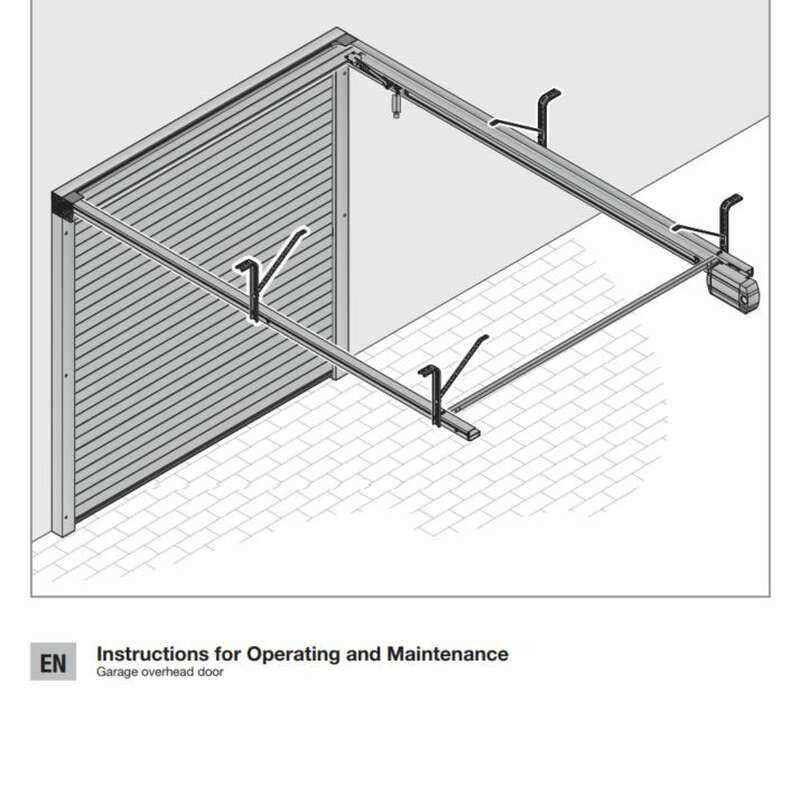
When setting up a new entryway system for your home, having the right set of tools can make a significant difference in ensuring the process is smooth and efficient. Each task involved in the setup requires specific implements to achieve precise results and maintain safety throughout the work. Understanding and preparing these key tools beforehand will facilitate a more straightforward and effective procedure.
Basic Tools
The foundation of any setup process includes basic implements that are crucial for assembling and positioning the components. These typically consist of a tape measure, which is essential for accurate measurements, and a level to ensure everything is properly aligned. A power drill and screwdrivers are needed to secure parts in place, while pliers and wrenches are used for tightening and adjusting various fittings.
Specialized Tools

In addition to standard tools, certain specialized implements are required for a seamless setup. A torque wrench is crucial for applying the correct amount of force to bolts, preventing damage or instability. A spring compressor might be necessary for handling and installing the tension springs safely. Finally, lubricant is used to ensure that moving parts operate smoothly and quietly.
Preparing Your Garage for Door Setup
Before commencing the setup process, it’s crucial to ensure that the space where the entryway will be installed is adequately prepared. This preparation involves organizing and clearing the area to facilitate a smooth and efficient installation. Proper preparation will help avoid potential complications and ensure that the assembly process goes as planned.
Assessing the Space
Begin by evaluating the area where the entryway will be placed. Measure the dimensions to confirm that the space aligns with the specifications of the new unit. Ensure that the surrounding area is free from obstructions that could interfere with the process. This includes checking for any items that might block the entryway or hinder the movement of the components.
Clearing the Area
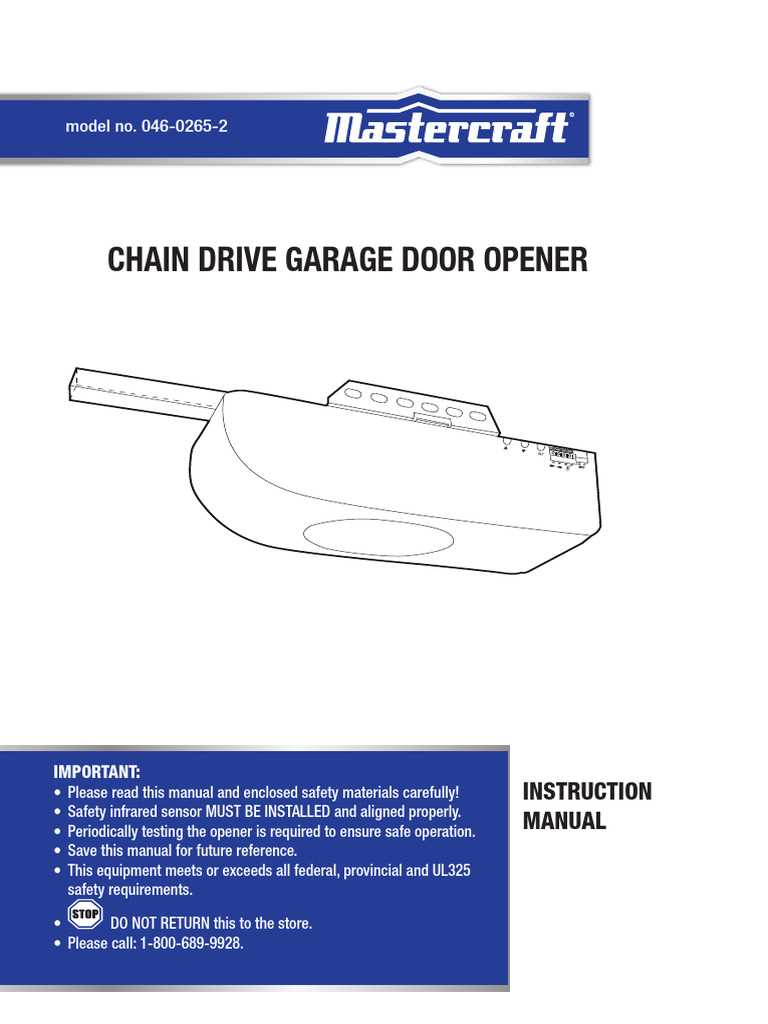
Remove all items from the vicinity of the installation site. This includes vehicles, tools, and any other equipment that could obstruct the installation. Ensure that the floor is clean and free of debris to provide a safe working environment. Proper organization of the space will help facilitate a smooth workflow and minimize potential delays.
| Task | Description |
|---|---|
| Measure Space | Verify dimensions of the area to ensure compatibility with the new entryway. |
| Remove Obstructions | Clear the area of any items or equipment that may obstruct the setup process. |
| Clean the Floor | Ensure that the floor is free of debris and other obstacles to create a safe working environment. |
Step-by-Step Guide to Mounting the Track
Properly securing the track is essential for ensuring smooth and reliable operation. This segment provides a systematic approach to setting up the track system, which serves as the critical framework for the entire mechanism. Follow these steps carefully to achieve a well-aligned and sturdy assembly.
1. Gather Tools and Materials: Before starting, ensure you have all necessary tools such as a level, drill, screws, and brackets. Make sure the track and hardware are on hand and in good condition.
2. Prepare the Workspace: Clear the area where the track will be mounted. This ensures you have ample space to work and minimizes the risk of accidents or errors.
3. Measure and Mark: Use a measuring tape to determine the correct position for the track. Mark the spots where the brackets will be attached, ensuring they are level and evenly spaced to guarantee proper alignment.
4. Install the Brackets: Attach the brackets to the marked positions using a drill and screws. Ensure they are securely fastened and level. This provides a stable base for the track.
5. Mount the Track: Position the track onto the installed brackets. Verify that it is properly aligned and adjust as necessary. Secure the track to the brackets according to the manufacturer’s recommendations.
6. Test the Setup: After installation, check the track’s alignment and stability. Make sure it is firmly attached and does not move. Conduct a few test runs to ensure everything operates smoothly.
By following these steps, you ensure a robust and efficient setup that supports optimal functionality.
How to Properly Install the Door Panels
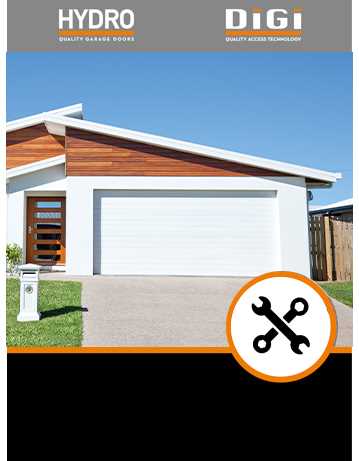
Achieving a flawless assembly of the panels is crucial for ensuring the functionality and aesthetic appeal of your entryway system. Properly placing and securing these components involves meticulous attention to detail and adherence to certain procedural steps. This guide will walk you through the essential phases of this task, ensuring that your panels are aligned and affixed correctly for optimal performance.
Preparation and Alignment
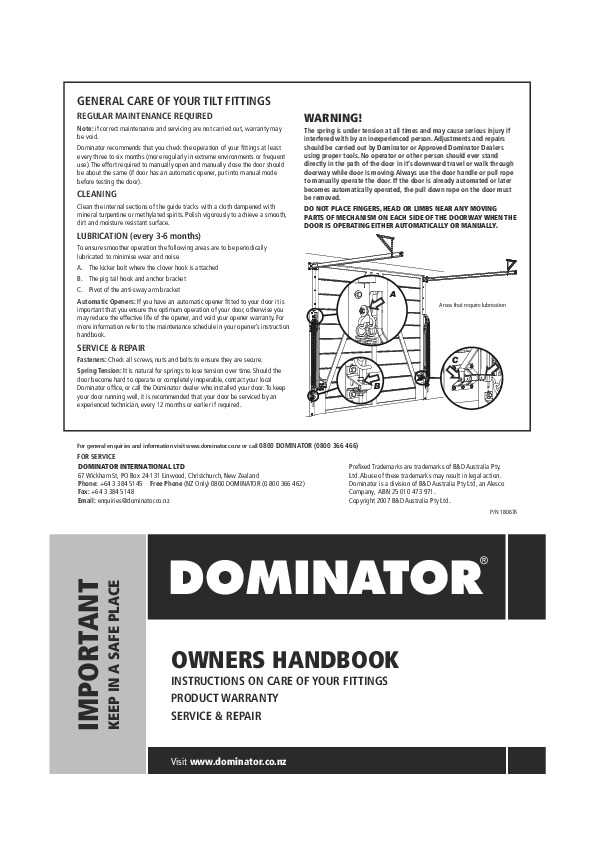
Before commencing with the attachment, ensure all parts are present and in good condition. Begin by aligning the panels to the frame, verifying that each section fits seamlessly into place. Accurate measurement and positioning are essential to avoid misalignment issues.
Securing the Panels
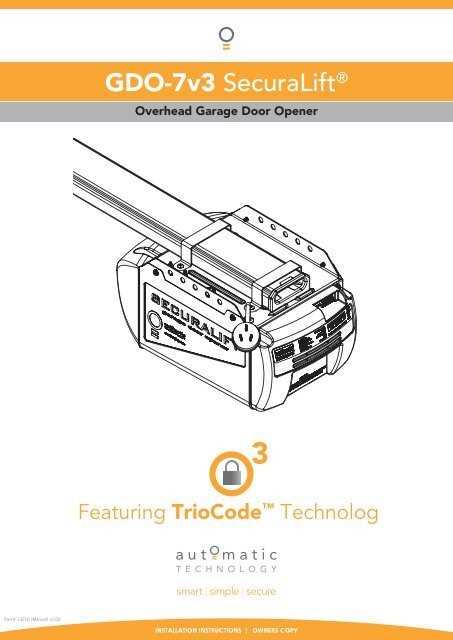
Once aligned, proceed to secure the panels using the provided hardware. Follow the sequence outlined in your guide to tighten each fastener appropriately. Avoid over-tightening, which can cause damage, and ensure that each connection is stable and secure.
| Step | Description | Tools Required |
|---|---|---|
| 1 | Check all components for damage and ensure compatibility. | Inspection tools |
| 2 | Align panels with the frame and make necessary adjustments. | Measuring tape, level |
| 3 | Secure the panels with provided fasteners, ensuring even pressure. | Screwdriver, wrench |
Testing and Adjusting Your Garage Door
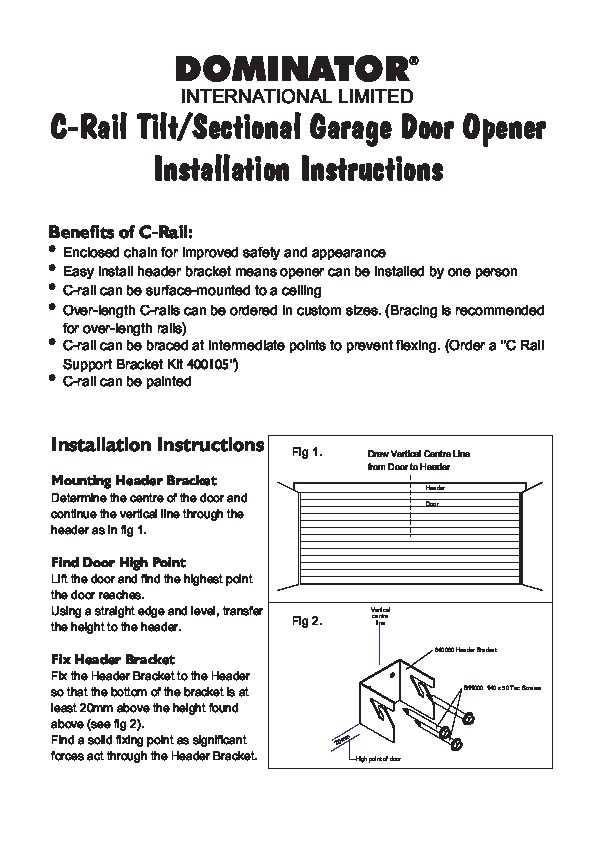
Ensuring the smooth operation of your entryway system involves thorough evaluation and fine-tuning. This process is crucial for maintaining optimal performance, safety, and longevity of the system. Proper adjustments ensure that the mechanism operates efficiently, preventing potential issues and extending its lifespan.
Start by verifying the balance of the system. When the entryway is in a partially open position, it should remain stationary. If it moves, it indicates an imbalance that needs correction. Next, examine the safety sensors placed at the bottom of the tracks. These sensors should be aligned correctly and free from obstructions to ensure they function properly.
| Component | Adjustment | Testing Method |
|---|---|---|
| Balance | Adjust springs | Partially open and check stability |
| Safety Sensors | Realign sensors | Test sensor response with a blockage |
| Opener Settings | Adjust force limits | Run the opener and observe its response |
Lastly, calibrate the opener settings to ensure proper response to commands and adequate force for smooth operation. By performing these tests and adjustments, you will enhance the performance and safety of your entry system, ensuring reliable operation for years to come.
Common Issues and Troubleshooting Tips
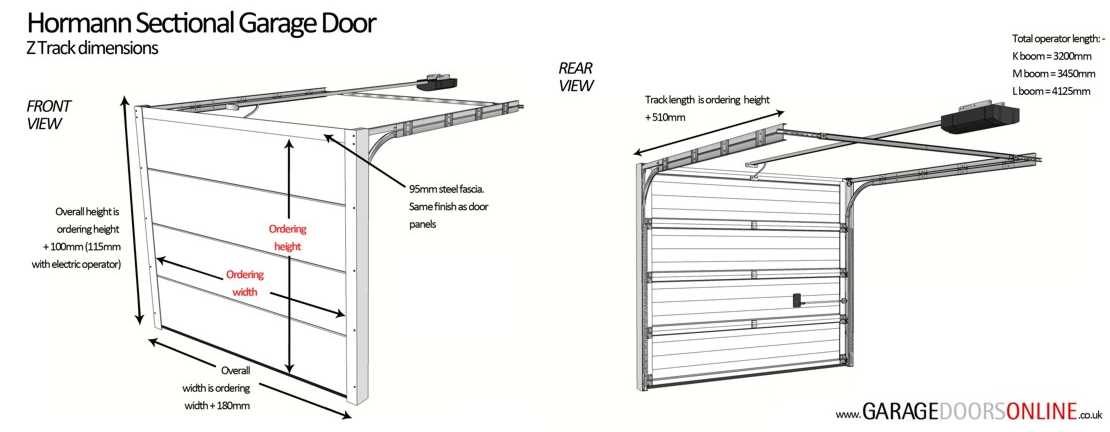
When dealing with the setup and functionality of your entry system, it’s important to be aware of potential challenges that might arise. Identifying and addressing these issues promptly can save time and ensure smooth operation. Below are some frequent problems encountered and practical solutions to help you resolve them efficiently.
1. Misalignment Problems
Misalignment is a common issue that can affect the proper functioning of your entry system. This often manifests as difficulty in opening or closing, or unusual noises during operation. Misalignment can be caused by various factors including installation errors or wear and tear over time.
| Issue | Possible Causes | Solution |
|---|---|---|
| Uneven operation | Incorrect alignment, loose hardware | Check and adjust the alignment. Tighten any loose components. |
| Unusual noises | Misaligned components, worn-out parts | Inspect and realign as needed. Replace any worn-out parts. |
2. Operational Issues
Operational issues can prevent the system from working correctly or at all. These problems can be due to power issues, malfunctioning parts, or control problems.
| Issue | Possible Causes | Solution |
|---|---|---|
| System not responding | Power supply issues, control malfunction | Ensure power supply is connected. Check and replace faulty controls. |
| Intermittent operation | Loose connections, electrical faults | Inspect all connections and wiring. Repair or replace any damaged components. |
By addressing these common issues with the appropriate solutions, you can maintain the optimal performance of your system and avoid more significant problems down the line.